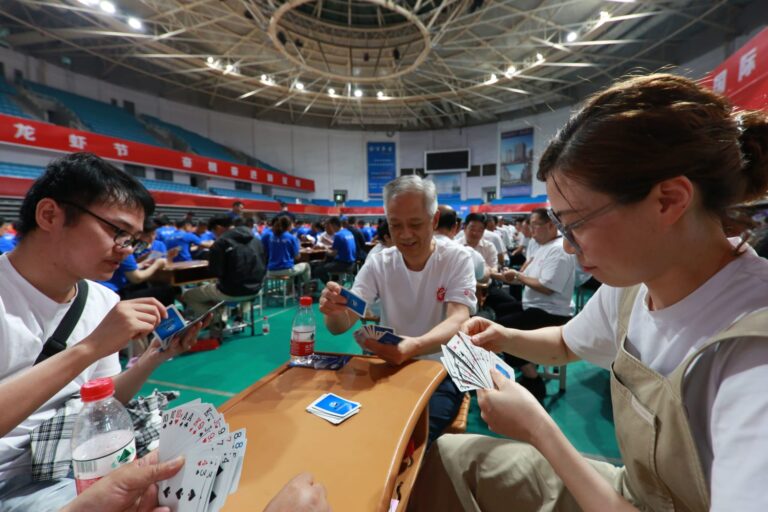HONG KONG — As U.S. investors pull money out of China, local financiers are focusing more on finding business in the country and learning about homegrown card games that may help.
Guandan, also known as “egg toss” in Chinese, is a poker-like card game that originated in Jiangsu, one of China’s wealthiest provinces. It has overtaken Texas Hold’em as the essential social skill for Chinese financial professionals amid the most tense U.S.-China relations in decades.
Chris Yu, an associate at a US-based venture capital firm in Beijing, believes that guandan is now more common in China’s financial sector amid a changing strategic landscape due to US curbs on investment in China. He said that
Last August, President Joe Biden issued an executive order restricting US investment in China in strategic areas such as artificial intelligence, quantum computing and semiconductors. Commerce Secretary Gina Raimondo said Wednesday that she expects rules implementing these restrictions to be finalized by the end of the year.
China has struggled to recover its economy since emerging from three years of pandemic quarantine early last year, but the impact has not gone unnoticed.
Chinese President Xi Jinping and other Chinese officials have sought to restore confidence in the world’s second-largest economy, with Mr. Xi visiting Europe for the first time in five years last week and meeting top U.S. officials in Beijing in March. We are striving to In the same month, China’s State Council announced a list of 24 targeted measures aimed at attracting foreign investment, with investment volume set at $33 billion in 2023, the lowest in 30 years.
But investors in China’s wealthy provinces and cities are doing everything they can to curry favor with local government officials and other potential sources of business, including learning their favorite card games.
“In order to raise funds, investment institutions must serve those who have funds and cater to their preferences,” You said. “It’s natural to play this local card game as a social activity.”
In Jiangsu and neighboring Anhui province, more than 20 million people regularly play guandan, Chinese business newspaper National Business Daily reported in January. In Shanghai, China’s business capital, the game is being promoted by the newly formed Guandan Card Association, chaired by a billionaire. Seishi Shimbun reported separately.
Guandan has several distinct advantages over other Chinese games popular among business professionals, such as Mahjong.
The objective of the game, with four players divided into two teams, is to work together with a partner to play all of your cards before either opponent does. It’s easy and quick to learn, allowing players to complete it before the first dish is served.
And unlike Texas Hold’em or Mahjong, Guandan is not a gambling game, so it’s safe to play even as Chinese authorities crack down on illegal gambling.
Jerry Niu, who sells mutual funds in the southern city of Shenzhen, started playing the game last year after a client invited him to play during a dinner party. It took him less than 10 minutes to memorize the rules.
“You can’t always keep your mouth shut while playing ‘egg toss.’ It’s only natural to have a conversation,” said Niu, who talks about market news and updates from acquaintances. He said that there was a wide range of gossip, including trivial gossip.
You said that guandan is better for building strong business partnerships than adversarial games.
“When you’re playing Texas Hold’em, everyone at the table is your rival, but when you’re playing ‘egg toss,’ you have allies,” he said. “This process Build closer relationships when meeting with local government officials and interacting with customers. ”
Guandan fever has spread beyond the financial industry and is spreading across China, with a growing number of players. Reach all over the country According to the National Business Daily, there are 140 million people.
Students at a school in central Hubei province were even required to learn games during winter break to develop their intellectual abilities and learn to be team players, Chinese business newspaper Jiemei Anpo reported. Reported.
In major cities, some financial professionals volunteer to host meetings that bring together people from various industries.
Amis Wang, who works at a financial company in Beijing, organized an in-person learning session at an activity center last August and played guandan for the first time.
“The tension between the United States and China will definitely affect the Chinese economy in general,” Wang said. “So I think it’s better to follow this trend and learn more about how financiers network, no matter what kind of company we work for.”

